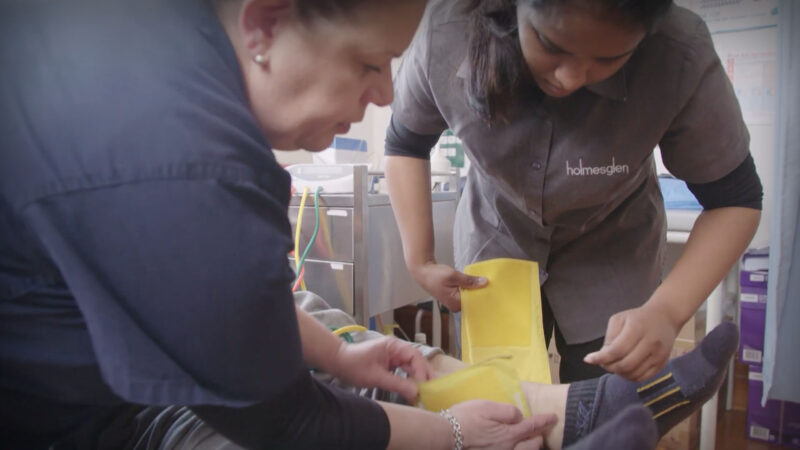In April 2023, Professor John Skerritt retired from his position of Deputy Secretary Health Products Regulation Group, a role he has been in since 2012. During his time at the TGA he had line responsibility for over 1200 staff involved in the regulation of therapeutic goods, regulation of gene technology and industrial chemicals and control of drug import, export and production.
During the COVID-19 pandemic he was part of the “public face” for media and community groups, conducting over 100 interviews, seminars and media conferences, including with the Prime Minister and Health Minister.
He became synonymous with, and the public face of, the Therapeutic Goods Administration, leaving behind an extraordinary record of public service.
During this time it was his reassurances that left Australians confident in the approval and regulation of medicines, vaccines and treatments.
“Professor Skerritt has had many achievements over the course of his career including Implementing the Medicines and Medical Devices Review, digital transformation, the regulation of medicinal cannabis, the rapid registration of COVID vaccines and treatments and playing a leading role in international harmonisation of regulation.”, said The Hon Mark Butler MP, Minister for Health and Aged Care in a press release issued in February the same year.
At this year’s ARCS 2023 Conference, ARCS Australia CEO Dr Shanny Dyer paid tribute to Professor Skerritt and his service to the Australian health industry. She led a tribute with fellow industry heads, Elizabeth de Somer, CEO, Medicines Australia, Anne Harris, Managing Director, Pfizer Australia & New Zealand, Deon Schoombie, CEO, Consumer Healthcare Products Australia, Ian Burgess, CEO, Medical Technology Association of Australia and Arthur Brandwood, President ARCS Australia.
About ARCS and its transformation in 2023
ARCS Australia is the association for people working on the development of therapeutics. The ARCS conference brings over 1500 people across the sector, in Australia, with international speakers coming this year. The conference runs over 3 days with 7 concurrent streams that cover all the areas that are involved in the development of therapeutics, including clinical research, regulatory affairs and pharmacovigilance.
The focus for ARCS at this year’s conference has been building competency frameworks in the areas that members work. As a significant step, ARCS is transforming into a professional body that both recognises and develops people into specific competencies that are required for the roles that those people are undertaking.
Dr Shanny Dyer states, “One of the key goals that ARCS is undertaking over this strategic period is to implement the professionalisation of our sector. Whilst we’ve been very clearly developing products that have safety, quality and efficacy, we now need to work on the quality of our staff, their ability to develop products and have a safe pair of hands and to work efficiently as well.”
You Might also like
-
Cardiovascular Disease Risk Guidance and Calculator get long overdue update
Cardiovascular disease (CVD) is responsible for significant morbidity and premature mortality in Australia. Ischaemic heart disease was the leading cause of death in 2020 and cerebrovascular disease was the third most common cause of death.
As the first major update to Australian CVD risk assessment guidelines in over a decade, the 2023 Australian Guideline for assessing and managing cardiovascular disease risk and associated Aus CVD Risk Calculator reflect the latest evidence on assessing, communicating, and managing CVD risk. Developed using Australian-specific data and the latest evidence, it supersedes the 2012 Guidelines for the management of absolute cardiovascular disease risk.
-
Student nurse placements in primary health care
With an urgent need to manage increasing rates of chronic disease, an ageing population, and a rapidly-ageing primary health care nurse workforce, Australia desperately needs more primary health care nurses to enter the workforce before the current generation retires and cannot pass on its skills.
Most nurses start their career in a hospital. Historically, it was difficult for universities and tertiary education providers to arrange placements for student nurses in primary health care. However, the APNA Student Nurse Placement Program provides student nurses with a foot in the door to a career in vibrant primary health care settings such as general practice or community health to perform supervised activities.
-
The world of AI avatars in dementia care
Dementia care is one of the critical issues facing the aged care industry. About 500,000 Australians currently live with the brain disorder condition, and this is tipped to rise to 1.1 million in a generation.
How to effectively provide quality care for people living with dementia was a key element of the royal commission into aged care, which found the complex care required was an ongoing challenge for the industry.


